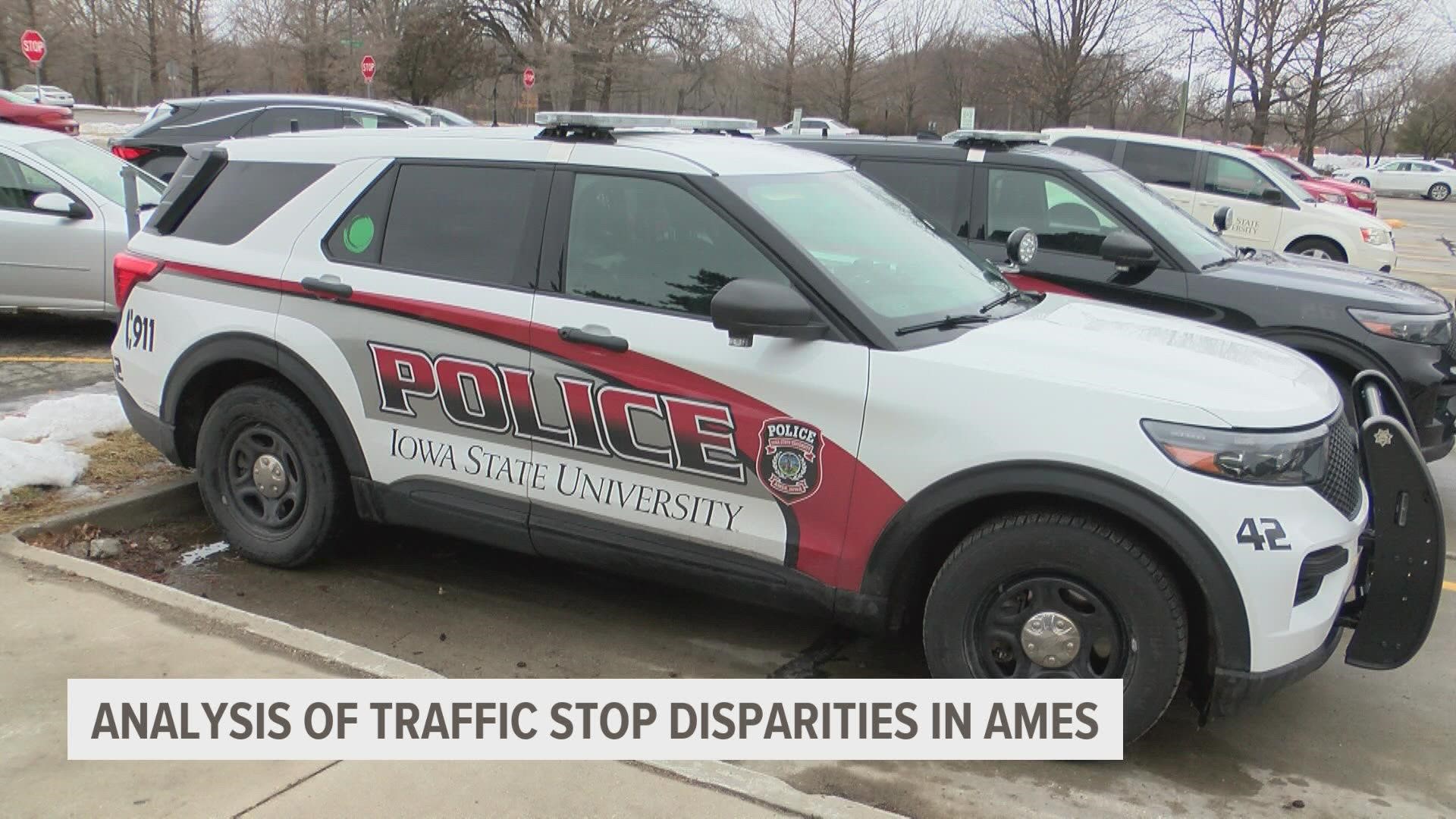AMES, Iowa — The Ames and Iowa State University police departments requested a third-party review to take a deeper look at exactly who they're pulling over. In particular, the departments said they wanted to evaluate whether or not racial disparities existed in their traffic stops.
CR Research Group LC analyzed stops officers made between 2017 and 2019 and found “negligible evidence of racial bias” in these stops. However, there were some discrepancies for both departments in some other areas.
The ISU review found that between 2017 and 2018, people of color were 36% more likely to receive a citation during a traffic stop, while white drivers were more likely to receive a warning. However, in 2019, there was no difference in outcome based on race.
The Ames review found no differences between people of color and white drivers for citations in 2018. In 2019, white drivers were about 33% more likely to receive a citation, while people of color were more likely to receive a warning.
"One of the things that we're hearing and seeing across the country is people are concerned about traffic stops, and especially traffic stops with people of color," said ISU Police Chief Michael Newton. "We thought, what a better way to find out do we have an issue here in Ames was to take a look at the data and see what what did disparities look like in Ames. And do we have an issue here?"
The report did highlight some disparities on what happens after the person has been pulled over.
"There were more arrests of minorities," said Dan Walter, the commander of Ames Police Department's Investigative Unit. "However, those were non-discretionary arrests, meaning that we didn't really have much of a choice."
Non-discretionary arrests occur when there is an arrest warrant or for crimes like operating while intoxicated or driving while barred. While police protocol requires an arrest for those types of violations, officers said it's eye-opening for a larger conversation.
"How can we effect and make that change," Walter said. "And quite frankly, it's probably bigger than just the police department. In order to try to make a real change."
If you'd like to read the reports in full, you can find them here: Iowa State University Report, Ames PD Report.
RELATED: 'I hope they see me as an example' | Ankeny's first Black police chief hopes to inspire others
WATCH | What you need to know from Iowa politics this week

